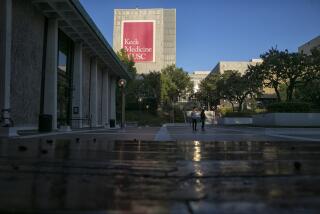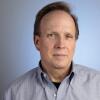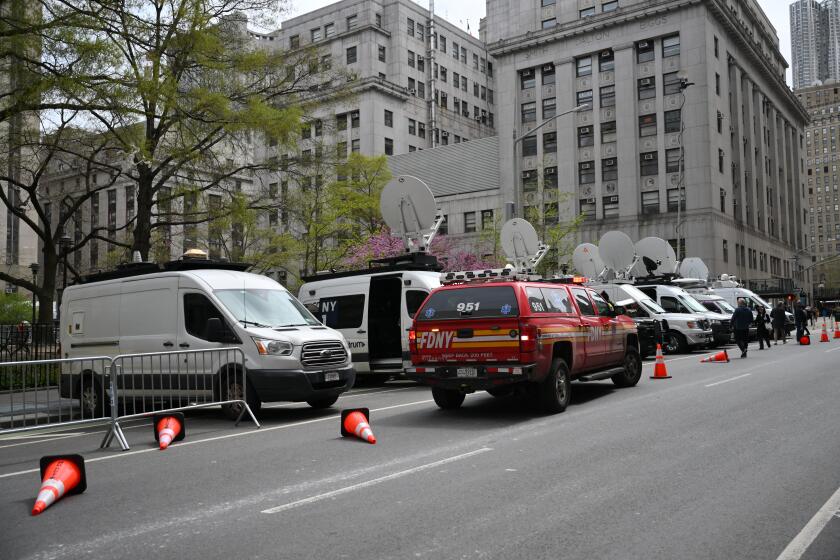Income From 2 Sources
Dr. Thomas J. Walsh, a physician-researcher for the National Institutes of Health, has added to his income and bolstered his lab with checks from drug companies, according to interviews and government records.
The NIH would not comment on Walsh’s relationship with industry, including whether he had obtained permission for outside work or had reported the income.
Long-standing agency rules have generally prohibited scientists from accepting fees from companies in cases where private and government work overlap. Last year the NIH barred its scientists from taking any consulting payments directly from industry.
Collaborations with industry that exclude the payment of personal fees to NIH employees, however, remain permitted and occur regularly. Both old and new rules have required scientists to get permission to do outside work, and to report any compensation.
In 2004, the most recent year for which complete summaries were obtained, Walsh received $153,627 in federal compensation, including $30,242 in nontaxable housing and living allowances. His unabridged annual financial reports, including details of any outside income, are confidential, as are those of most senior NIH researchers.
In April, Walsh said in a statement to The Times that collaborating with industry was integral to his government work. He did not discuss specifics of his ties to companies for this article.
Nor has Walsh always disclosed such ties when writing for a medical journal.
An editorial by Walsh, published in December 2002 by the New England Journal of Medicine, referred to an antifungal drug made by Merck & Co. -- but did not mention his receipt of fee income from the company. The journal’s conflict-of-interest policy requires authors to acknowledge such income.
After inquiries from The Times, the journal asked Walsh to submit a revised disclosure statement. A spokeswoman for the journal, Karen Pedersen, said Walsh had “failed to disclose” the income from Merck when he submitted the editorial. On March 16, the journal published a correction, saying the editorial “should have included the fact that Dr. Walsh received an honorarium from Merck.”
Walsh told The Times that his lack of disclosure was inadvertent.
Walsh also has consulted with Pfizer, said Mariann Caprino, a spokeswoman for the company. She said Walsh was paid from 2001 to 2005 for participating in private meetings at Pfizer “to discuss clinical trial designs.”
“We did compensate him for his time,” Caprino said in an interview.
When Pfizer brought its antifungal drug before an FDA advisory committee in October 2001, a company executive identified Walsh as part of its “sponsor section.” The FDA approved the drug, Vfend, about seven months after the advisory committee meeting.
“He attended the advisory committee in the capacity of an expert in this area,” Caprino said, adding: “His relationship was fully disclosed by us at that meeting.”
Walsh said that he was not paid by Pfizer to attend the meeting. He did not respond to questions seeking details about his compensation from Pfizer.
Caprino declined to state how much Pfizer had paid Walsh over the years, but said: “He received a standard per-diem rate. Basically, that compensates him for time out of the office.”
Merck and another company, Fujisawa USA Inc., in recent years also identified Walsh both as a company participant and as an NIH official when the firms presented new antifungal drugs at FDA advisory committee hearings.
A spokesman for Merck, Christopher Loder, said the company had paid Walsh personal fees of $2,000 in 1999 and $1,000 in 2001 for participating in two “Merck meetings.” Loder said Merck did not pay Walsh fees to develop its new antifungal drug, Cancidas.
As for Fujisawa, in 1997 Walsh assisted the company’s presentation of its first antifungal drug to an FDA advisory committee. And on March 28, 2003, Walsh accompanied Fujisawa executives when they met privately with FDA staff to discuss the company’s latest antifungal, Mycamine. A summary of the meeting prepared by the FDA identified Walsh as a consultant.
In March 2005, the FDA approved Mycamine for marketing in the U.S.
In his recent statement to The Times, Walsh said: “I have never appeared at any FDA meeting as a consultant to Fujisawa.” Referring broadly to industry, Walsh also said: “While a company might ‘consult’ with me, i.e., in the generic sense of seeking my insights or knowledge, these are not consultancies in the official, governmental sense, but rather collaborations.”
A spokeswoman for Fujisawa, which now operates as Astellas Pharma US Inc., said the company had paid the NIH for Walsh’s efforts dating to the 1990s and the development of its first antifungal drug, AmBisome.
“He’s been a consultant of ours since the early days, since the preapproval of AmBisome, through currently,” said the spokeswoman, Maribeth Landwehr, adding that the company had paid for Walsh’s “general consulting” by writing checks to the NIH, not to him. Fujisawa, she said, paid “at a rate which we believe to be acceptable.”
Vestar Inc., a San Dimas company that developed AmBisome originally and later in partnership with Fujisawa, also worked closely with Walsh. Richard T. Proffitt, a co-inventor of AmBisome who headed research for Vestar, said the company collaborated with Walsh on testing the drug in animals.
Proffitt said Walsh suggested that Vestar could make contributions to a foundation that would make funds available for Walsh’s research. Proffitt said that from about 1990 to 1993, Vestar wrote checks, totaling approximately $60,000, to the foundation. Proffitt said he did not recall its name. “It wasn’t like he implied that we had to give money to the foundation,” said Proffitt. “But he certainly gave me the foundation name.”
Proffitt said he regarded Walsh as “a straight scientist” who was focused on research, not financial gain.
Generally, federal law does not allow an official or a government laboratory to function as a for-hire contractor to industry. However, the NIH evaluates proposed collaborations on a case-by-case basis. Such arrangements would be approved if they were “consistent with an ongoing research program” within the NIH, said an agency spokesman, John T. Burklow.
Records obtained under the Freedom of Information Act show that some companies supported Walsh’s government research by making donations to the Gift Fund of the National Cancer Institute.
For instance, in March 1998, Fujisawa sent Walsh a $40,000 check to the fund along with a letter of explanation, saying the money was intended for his government laboratory and “clinical research program.” Fujisawa also told Walsh that the money could be used for “personnel, support services and travel,” plus equipment and supplies.
After reviewing the NIH’s overall policy for accepting gifts, the Government Accountability Office last year raised concern. The federal auditors said the NIH’s policy “does not provide sufficient assurance that potential conflicts of interest between NIH and donor organizations will be appropriately considered.”
At one point, Walsh’s involvement with Fujisawa drew the attention of an FDA advisory committee chairman. In April 1997, several hours after Walsh had introduced himself by his government title while speaking to the committee, the chairman clarified the record.
“Dr. Walsh serves as a principal investigator on a Fujisawa-sponsored study,” said Dr. Scott M. Hammer of Columbia University, referring to a major clinical trial of AmBisome. “I have no further comment to make about that, but it’s now in the record.”
The committee had met to consider an antifungal drug made by a rival of Fujisawa’s, Sequus Pharmaceuticals Inc. Walsh was the only person who signed up to speak during the meeting’s public hearing.
Walsh told The Times by e-mail that his remarks had been intended to provide relevant context. “Providing this sort of background, information and analysis is part of my job and has nothing to do with favoring one compound or company over another,” he said.
An executive who represented Sequus that day, Dr. Marc Gurwith, said his firm had been surprised by Walsh’s appearance. “It was very unusual for someone from the government to come in like that,” Gurwith said. “He was raising doubt about whether we had sufficient data to support our application.”
The FDA committee voted against endorsing the drug made by Gurwith’s company for use in patients with suspected fungal infections.
Times researcher Janet Lundblad in Los Angeles contributed to this report.
More to Read
Start your day right
Sign up for Essential California for news, features and recommendations from the L.A. Times and beyond in your inbox six days a week.
You may occasionally receive promotional content from the Los Angeles Times.







